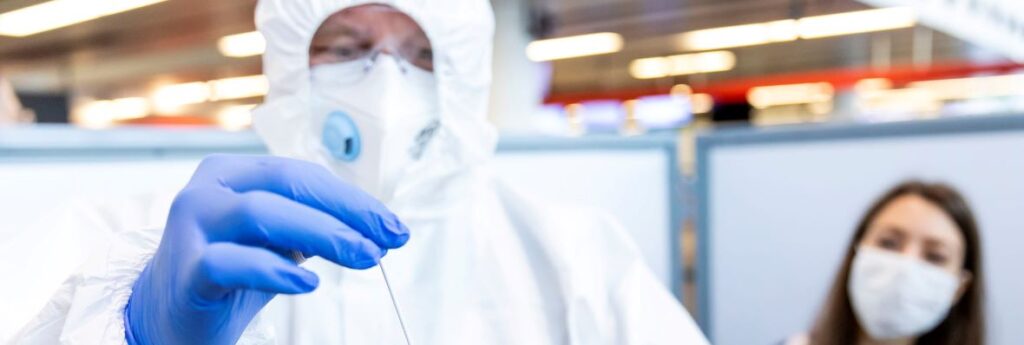Citing new research that says rapid testing is accurate, convenient, and cost effective, the International Air Transport Association (IATA) is urging governments to accept best-in-class antigen tests to fulfil COVID-19 requirements as a step towards a safe and efficient restart of air travel.
The IATA commissioned OXERA-Edge Health report concludes:
• The best antigen tests provide broadly comparable results to PCR tests in accurately identifying infected travellers. The BinaxNOW antigen test, for example, misses just one positive case in 1,000 travellers (based on an infection rate of 1% among travellers). And it has similarly comparable performance to PCR tests in levels of false negatives.
• Processing times for antigen tests are 100 times faster than for PCR testing.
• Antigen tests are, on average, 60% cheaper than PCR tests.
“Restarting international aviation will energize the economic recovery from COVID-19. Along with vaccines, testing will play a critical role in giving governments the confidence to re-open their borders to travellers,” says IATA Director General and CEO Alexandre de Juniac. “For governments, the top priority is accuracy. But travellers will also need tests to be convenient and affordable. The OXERA-Edge Health report tells us that the best-in-class antigen tests can tick all these boxes. It’s important for governments to consider these findings as they make plans for a re-start.”
IATA says current, fragmented testing requirements are confusing to travellers, and adds that many governments do not allow rapid testing. It adds that PCR tests are inconvenient, have significant costs disadvantages and, in some parts of the world, capacity is limited “with first priority correctly given to clinical use.”
In terms of cost, the report’s modelling suggests that a typical London-Frankfurt business trip sees a cost increase of 59% with the PCR test requirement, while a family of four travelling from the UK to the Canary Islands would have to take 16 tests costing 160% above the price of the airfare. And based on five long-haul flights studied, those increased costs would reduce demand by 65%, comparted to 30% with an antigen test.
In addition to dramatically shorter processing times for antigen testing when compared to PCR, the report also pointed to the scarcity of PCR tests. According to the report, current spare PCR testing capacity in the UK, for example, would cover only 25% of 2019 passenger levels, which could cause bottlenecks when passenger numbers rebound.
“We are already seeing rapid testing becoming commonplace in non-travel settings such as schools and workplaces,” says de Juniac. “Extending its use to travel is a logical step. Science backs this up. In real world conditions, antigen testing is as effective as PCR testing in reducing the risk of cross-border transmission. Meanwhile the cost and bureaucracy of PCR tests adds huge burdens to families and businesses looking to travel. These are important considerations in preparing for a successful re-start.”

